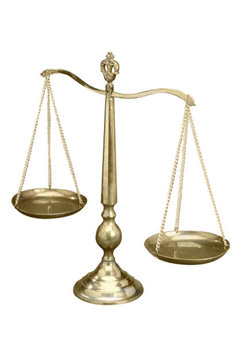
The term ‘critical’ refers to the capacity to inquire ‘against the grain’: to question the conceptual and theoretical bases of knowledge and method, to ask questions that go beyond prevailing assumptions and understandings, and to acknowledge the role of power and social position in phenomena.
Critical theory is prescriptive, explanatory, practical and normative, all at the same time.[1] That is, it explains what is wrong with the current social reality, identifies the actors to change it, and provides both clear norms for criticism and achievable practical goals for social transformation. Its intention is not merely to give an account of society and behaviour but to realise a society that is based on equality and democracy for all the people in the society.
Conflict and inequality are crucial to understanding the dynamics of human relations. Critical theory seeks to uncover the interests at work in particular situations and to interrogate the legitimacy of those interests, identifying the extent to which they are legitimate in the interests of equality and democracy. Its intention is transformative – to transform society and individuals to social democracy. Improving the quality of life, be it in the workplace or social setting therefore focuses on the elimination or reduction of inequality, preferential treatment, and discrimination.
Critical theory identifies the ‘false’ or ‘fragmented’ consciousness that has brought an individual or social group to relative powerlessness, or power, and it questions the legitimacy of this.[2] It investigates issues of repression, lack of freedom of expression, ideology, participation (or not), representation (or not), inclusion or exclusion and the protection of interests.
Increasingly, the multiple identities of individuals can justify investigation. Differences in race, gender, religion, sexual orientation, skin colour, disability, being a minority, can be grounds for discrimination and oppression, which should be investigated and solved.
Critical theory is any research that challenges those conventional knowledge bases and methodologies whether quantitative or qualitative, that make claim to scientific objectivity. In this respect the purpose of a critical theory paradigm in research is practical, namely, to bring about a more just, egalitarian society in which individual and collective freedom are secured. The contribution of critical theory is, therefore, often not just adding to or improving current knowledge or philosophy but also contributing to the physical living quality of people in a community, environment or in general.
The main task of critical research is seen as being one of social critique, whereby the restrictive and alienating conditions of the status quo are brought to light. Critical research focuses on the contest, conflict and contradictions in contemporary society, and seeks to be emancipatory, that is, it should help to eliminate the causes of alienation and domination.
Researchers using critical theory assert that what counts as valid social science knowledge arises from the critique of the social structure and systems as revealed through the analysis of the discourse in society. The critical researcher lays bare the current discourses in society and analyses them in terms of the system within which they operate. In this way the power relationships between the system and its structures are disclosed and the oppressive nature of the system are revealed.
Although people can consciously act to change their social and economic circumstances, critical researchers recognise that their ability to do so is constrained by various forms of social, cultural and political domination. Consciousness and identity are formed within the political field of knowledge. Critical theorists argue that values, historical circumstance and political considerations cannot be changed through research. Therefore, efforts to eliminate or reduce inequality and discrimination should focus on managing such values, historical circumstance and political considerations in such a way that people are not discriminated against because of them.
Our understanding of the educational, political, economic or social situation depends on the context within which we encounter them, and our own theoretical knowledge and assumptions influence our observation. These factors create our ideological frames of reference that act as the lenses through which we see the world. Research making use of a critical theory paradigm should therefore take the context and environment in which people live into consideration when seeking for theoretical and physical improvements. It is the task of the critical researcher to disclose the needs and struggles of the people regardless of whether or not they are conscious of them.
In terms of the need to improve knowledge about the damage that inequality and discrimination causes people, critical research attempts to reveal the socio-historical specificity of knowledge and to shed light on how particular knowledge reproduces structural relations of inequality and oppression. Researchers following critical theory methods assume that social reality is historically created and that it is produced and reproduced by people. Every historical period produces particular rules that dictate what counts as scientific fact. Society reproduces inequalities from one generation to the next, called “reproduction theory”.
Conflict and inequality are mostly part of research making use of a critical theory paradigm. It is necessary to study conflict and inequality and the resistance that they cause in order to understand the dynamics of human relations. Resistance becomes an important part of the response to injustices towards individuals or groups in a community or society. In this respect critical theory is also “resistance theory”.
Critical theory investigates and uses three types of knowledge, also called cognitive interests: technical interest, practical interest and emancipating interest.
Technical interest is concerned with the control of the physical environment, which generates empirical and analytical knowledge. It is concerned with “how” things are done.
A practical interest is concerned with understanding the meaning of situations, which generates hermeneutic and historical knowledge. Practical interests are concerned with the “what”, or the ontology of phenomena.
An emancipating interest is concerned with the provision of growth and advancement, which generates critical knowledge and is concerned with exposing conditions of constraints and domination. The emancipating interest, furthermore, deals with the human capacity to be self-reflective and self-determining, to act rationally.[3] Technical and emancipatory interests together deal with the epistemology of knowledge.
Critical theory serves as a foundation for and can be integrated with rationalism, neoliberalism, post-colonialism, feminism, radicalism, romanticism, and critical race theory. Although qualitative research methods are popular, quantitative research methods can also be used. Supporters of quantitative research methods and the accompanying technicist paradigms are of the opinion that the lenses that qualitative researchers use to critically analyse a system are subjective and the observations made through such research are not subject to empirical verification in the positivist sense.
Proponents
of critical theory claim that it is a complex and intricate paradigm which
requires years of intensive study to fully understand. They, furthermore, feel
that research that deals with the values and emotions of people needs to take
affective factors, which are difficult to quantify, into consideration. Then
again, a second school of scientists feel that that those who regard critical
theory as such a difficult to comprehend paradigm are of the opinion that this
is nothing but smugness. Emotions, they believe, can be analysed through
numbers, for example by asking multiple-choice questions in a questionnaire.
[1] http://plato.stanford.edu/entries/critical-theory. Accessed on 09/02/2017.
[2] L. Cohen, L. Manion and K. Morisson, 2007: 26.
[3] https://journals.iupui.edu/index.php/teachingwriting/article/download/1089/1047/0. Accessed on 01/05/2018.







